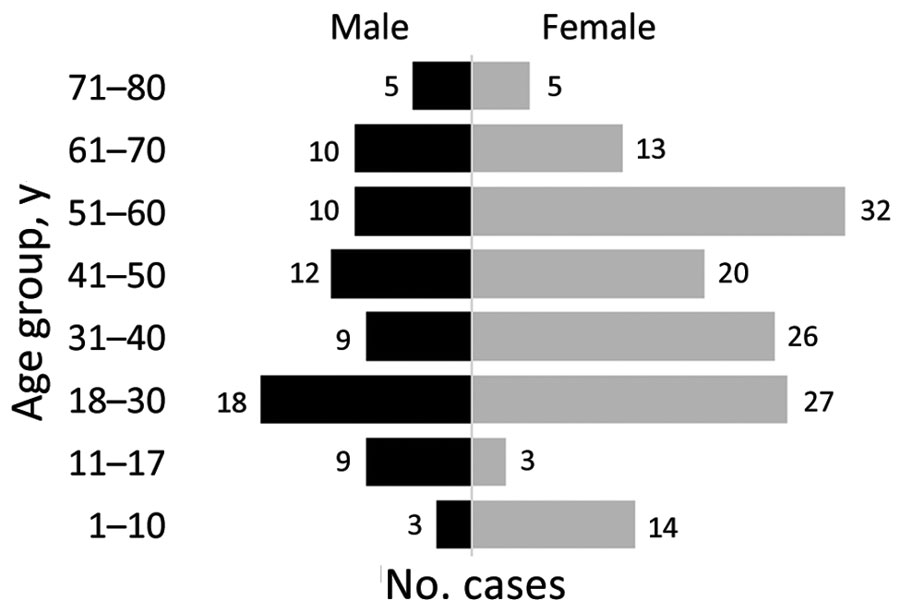Volume 29, Number 7—July 2023
CME ACTIVITY - Research
Rising Incidence of Sporothrix brasiliensis Infections, Curitiba, Brazil, 2011–2022
Figure 2

Figure 2. Age–sex pyramid showing the distribution of cat-transmitted sporotrichosis cases in patients treated at Hospital de Clínicas, Federal University of Paraná, Curitiba, Brazil, 2011–May 2022.
Page created: March 15, 2023
Page updated: June 16, 2023
Page reviewed: June 16, 2023
The conclusions, findings, and opinions expressed by authors contributing to this journal do not necessarily reflect the official position of the U.S. Department of Health and Human Services, the Public Health Service, the Centers for Disease Control and Prevention, or the authors' affiliated institutions. Use of trade names is for identification only and does not imply endorsement by any of the groups named above.